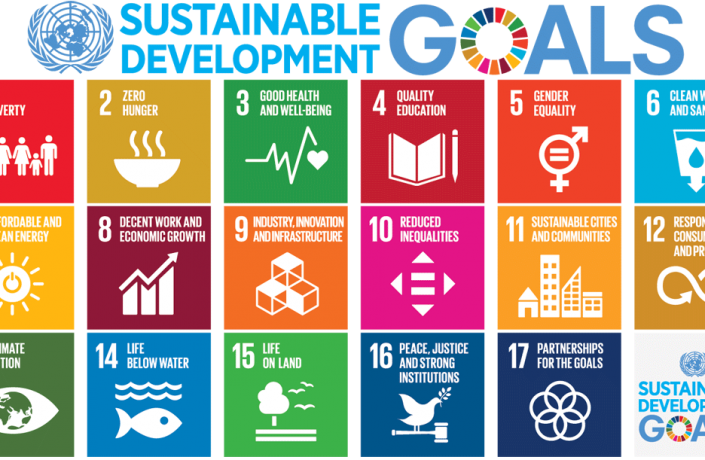 News
News


The response to the world’s most pressing environmental challenges – including on food and climate change – is too often inadequate. But examples of citizen-led digital social innovation are emerging right across Europe, says Matt Stokes.
Twelve years to limit a climate change catastrophe, increasingly regular – and violent – natural disasters, widespread food shortages: every week brings a new headline about the impending consequences of human activity on the environment – and about the inadequacy of our response.
From climate change denialism to populist tax cuts on fuel, the consistent inability and unwillingness of the majority of our politicians, industries and corporates to make big, bold decisions is, put bluntly, depressing.
But, as Nesta’s new research with Amsterdam-based Waag shows, if governments won’t act, people will – and they’ll use whatever tools are available to make change.
With the advent of new open, collaborative technologies like crowdsourcing, open data and digital fabrication, we’re now seeing hundreds of citizen-led and bottom-up groups using digital to do their bit in tackling the biggest challenge of our time.
At Nesta, we’ve been exploring this trend, which we call digital social innovation (DSI), as part of the EU-funded DSI4EU project.
Over the past few years, we’ve witnessed the emergence and establishment of thousands of initiatives using tech to tackle a range of social and environmental challenges. Our crowdsourced database (which you can add to) now has over 2,000 organisations and almost 1,500 projects – and we know it’s far from complete.
What’s really exciting about DSI is its ability to empower people to make change, using technology as a tool. In the context of our environmental challenges, this means citizens are no longer just subject to policies – dithering over which recycling bin to choose or wondering what on earth a carbon credit is – but actively involved in monitoring, mapping and shaping their immediate environments and that of the planet as a whole.
Using “citizen sensing” devices based on open-source hardware and low-cost, accessible materials (like the Smart Citizen Kit or hackAIR), people can collect accurate and hyperlocal data about air, noise and even smell pollution, which they can then use to lobby for change and accountability.
In Spain, the EU-funded Making Sense project engaged citizens to measure noise data on one of Barcelona’s busiest squares, with which they managed to persuade the city council to take measures to reduce night-time noise. In the UK, the Bristol Approach, which originated in a project monitoring damp in homes, provides a set of tools for citizens and other groups to implement their own projects.
On the other side of the planet, Rainforest Connection upcycles used mobile phones with solar-powered noise sensors and distributes them to local communities in rainforest areas. When suspicious sounds are sensed, which could betray illegal logging or poaching, an SMS is automatically sent to authorities to enable them to investigate.
In other cases, people can now augment existing models with new technology to make them radically more convenient and cost-effective, and therefore to attract more users. Local farming and food cooperatives, for example, are well-established, but have traditionally struggled to scale.
Open Food Network, for example, offers digital infrastructure to make the processes of managing supplies, staff and logistics much easier, while Netherlands-based ECONOBIS helps citizens run local energy cooperatives.
On top of this, newer technologies also hold great potential. For example, 3D-printing and other related technologies mean people can make things locally rather than having to import them, while Precious Plastic’s open-source machines recycle used plastic bottles into plastic wire for 3D printing.
Digital tools like these hold huge potential for transforming the way our global supply chains, waste management and consumer cycles work. This potential is perhaps best summed up through Fab City, a network of 28 cities committed to being completely self-sufficient by 2054.
And it’s not just about the cutting-edge technology. Indeed, simple technologies like matchmaking platforms are being used to great effect for environmental purposes. OLIO, for example, is a rapidly-growing platform for residents to share leftover food with one another, whose 600,000 users have shared over one million portions of food in just three years.
The EU-funded Saving Food project has a similar aim, focusing on tackling the logistical and behavioural barriers which people face when food sharing.
Even more excitingly, a lot of these projects have significant secondary impacts – from building community resilience through collective action, to tackling isolation through meal sharing, to supporting microbusinesses with local manufacturing.
You might be sceptical about the potential of these relatively small-scale projects to have any impact on the huge challenges we’re facing today. And, as things stand, you’d probably be right.
DSI hasn’t received a lot of attention or funding from decision makers, and initiatives still struggle to find sustainable business models, to engage everyday citizens and to work with mainstream civil society and government organisations. That’s why we’re trying to advocate for DSI and support people working in the field to share their stories, successes and lessons.
Even if all of these initiatives did scale, it still wouldn’t be enough; bottom-up initiatives need to sit alongside top-down policies, regulation and concerted international action.
But just imagine if every city had vibrant networks of people sharing food using online platforms; if loggers and poachers could no longer roam freely in dense rainforests; if you could understand every day what the air pollution was like outside your front door; or if you could make everything you need down the road rather than having it shipped across the world.
This is a future we think is possible. And, while it might be true that DSI is no panacea, it gives us cause for hope, and it needs to be supported to reach its full potential.
Matt Stokes is a senior researcher in government innovation at Nesta